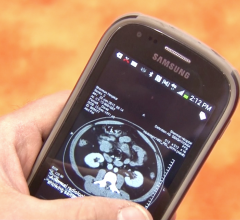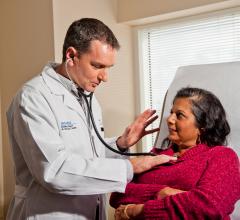
Image: Getty Images
April 21, 2022 – Despite a similar prevalence of the chronic condition, women diagnosed with heart failure have worse outcomes compared to men. A deeper look reveals that among Black and Latina women with heart failure, negative health outcomes are magnified due to significant health disparities and inequities that exist in the management of the condition. To address this critical unmet need, Boehringer Ingelheim and Eli Lilly and Company have announced the launch of Hear Your Heart, a health initiative that empowers women with heart failure to prioritize their care. Hear Your Heart will provide unique, tailored resources and educational content, including perspectives from others living with heart failure and experts who treat the condition.
Women’s Experiences with Heart Failure Reveal Gaps in Care
Although professional guidelines show no difference in recommendations based on gender, recent data reveals that healthcare professionals are less likely to adhere to guidelines in the diagnosis and treatment of heart failure in women when compared to men, which can lead to undertreatment. Moreover, Black and Latina women with heart failure face additional obstacles in treatment. They are less likely to be admitted to specialized cardiology units, which can lead to worse outcomes. Black women with heart failure have a higher mortality rate compared to white women, and heart disease – which includes heart failure – is the second leading cause of death for Latina women. These realities underscore the need for better education and access to improve care. Working together to understand and address these findings is a critical step forward in the treatment of heart failure for women.
Hear Your Heart is specially designed to tackle these notable disparities in heart failure treatment by encouraging proactive, ongoing conversations and providing actionable steps for women living with heart failure, care partners and healthcare providers to help improve outcomes.
“Heart failure affects more than six million people in the U.S. and has a considerable effect on quality of life. The burden of this disease is compounded for Black and Latina women who face unique challenges and barriers that prevent optimal heart failure care,” said Alanna Morris, MD, MSc, FHFSA, FACC, FAHA, Associate Professor of Medicine, Division of Cardiology, Emory University School of Medicine. “I am proud to lend my voice to Hear Your Heart in support of a platform to address health equity issues in these underserved communities. It’s time for the women who give so much to their families and communities to be encouraged to listen to what their heart needs, ask for support and take control of their heart failure care.”
Prioritizing Heart Health and Care
Heart failure care can be complicated and overwhelming, and for women who also take care of their loved ones, their own health is frequently deprioritized. According to the Centers for Disease Control and Prevention, two out of every three care partners – those who provide ongoing support to a loved one – in the U.S. are women, and women who are care partners have a greater risk for poor physical and mental health.
“Individual support will look different for each person, but implementing lifestyle changes, prioritizing mental health and ensuring associated conditions are managed with diligent self-care and medication adherence are just a few important aspects of heart failure care,” explained Dr. Alanna Morris. “Improved management could also include seeking a second opinion, asking for a referral to a specialist or connecting with a local advocacy group for added support.”
“Proactive and comprehensive heart failure care can lead to better patient outcomes not just for the cardiovascular system, but the renal and metabolic systems as well, given they are interconnected,” said Anita Holz, MSN, CRNP, Executive Director, Therapeutic Area Head Cardiometabolism, Clinical Development and Medical Affairs, Boehringer Ingelheim Pharmaceuticals, Inc. “With Hear Your Heart, we are not only providing education and resources to support holistic care, but we are encouraging women with heart failure to reassess their care to determine what areas they can address to put themselves first and feel their best living with the condition.”
Professional Representation and Education is Critical for Equitable Care
While women living with heart failure can and should be their own advocate, healthcare professionals also have a responsibility to provide equitable, quality care. Research shows that a lack of representation among healthcare professionals can contribute to health disparity and equity issues. Currently, only 37% of physicians are female, and of that 37%, only 2% are Black women. Hispanics make up more than 18% of the population, but just 6% of healthcare professionals. Increased education among current and future healthcare providers dedicated to the unique needs of these women is crucial to addressing the care disparities that currently exist.
Hear Your Heart will grow to include programming and resources for healthcare providers and medical students. Spanish language resources will be available later in 2022.
“Bridging the gap in health disparities for Black and Latina women with heart failure is no easy task, but the Boehringer Ingelheim and Lilly Alliance understands health equity efforts must both address the unmet needs of this patient population and support education among the current and next generation professional community,” said Matt Caffrey, Associate Vice President of U.S. Diabetes/CV Marketing, Lilly Diabetes. “We are thinking beyond treatments to engage healthcare professionals in this critical issue and look to arm women living with heart failure with the information they need to ensure they are able to advocate for optimal care.”
For more information: HFHearYourHeart.com
Related Women and Heart Failure Content:
Study Finds Infertility History Linked with Increased Risk of Heart Failure
ACC, AHA, HFSA Issue Joint Heart Failure Guideline
Women More Likely to Die After Heart Emergency than Men
Related Women's Health Content:
Sex Differences in 'Body Clock' May Benefit Women’s Heart Health
Diagnostic Differences in Women’s Heart Health
New Advice Will Help Women with Congenital Heart Defects Navigate Pregnancy
VIDEO: Differences in Cardiac Complications and Presentation Between Men and Women — Interview with Cindy Grines, M.D.
Pregnancy-Related Heart Failure Strikes Black Women Twice as Often as Other Races
Cardiac Imaging Reveals Roots of Preeclampsia Damage in Pregnant Women
Marked Increase in Cardiovascular Risk Factors in Women After Preeclampsia
VIDEO: Sex Differences in Diagnosing Heart Disease in Women — Interview with Doreen DeFaria Yeh, M.D.
VIDEO: How to Build a Successful Women’s Heart Center — Interview with Malissa Wood, M.D.
Find more articles on women's heart issues in the Women's Cardiovascular Health channel


 August 18, 2023
August 18, 2023 








